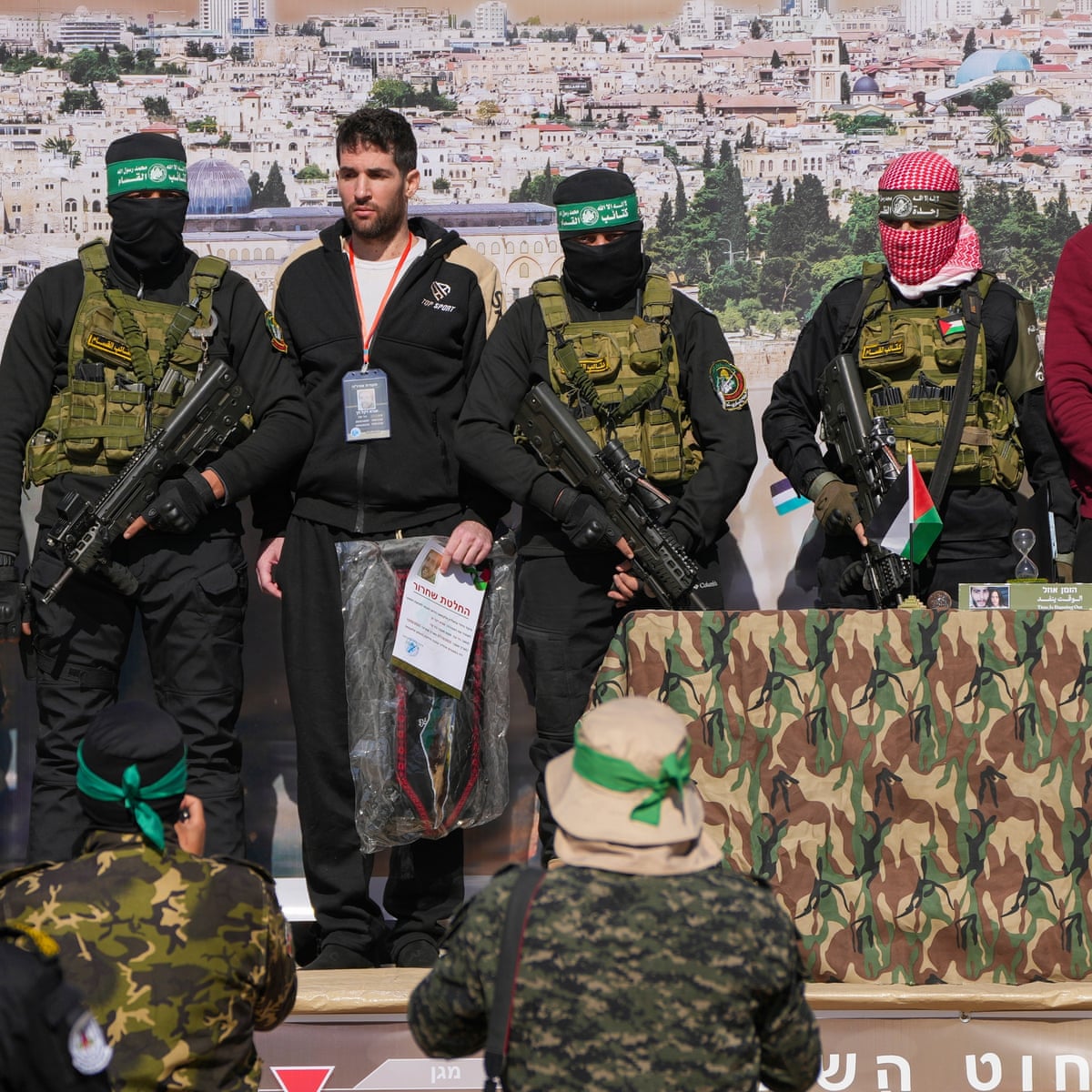Hamas freed three Israeli hostages early Saturday as part of the Gaza ceasefire deal in exchange for the release of 369 Palestinian prisoners.
The first groups of Palestinian prisoners were bussed shortly thereafter to the West Bank city of Ramallah.
The three Israeli hostages released were identified as Iair Horn, Sagui Dekel Chen and Sasha (Alexander) Troufanov.
This was after mediators helped avert a collapse of the fragile ceasefire.


The three Israelis were led onto a stage with Palestinian Hamas fighters armed with automatic rifles standing on each side of them at the site in Khan Younis, live footage showed, before they were taken back into Israel by Israeli forces.
Shortly afterwards, buses carrying freed Palestinian prisoners and detainees departed Israel’s Ofer jail in the Israeli-occupied West Bank. The first bus arrived in Ramallah to a cheering crowd, some waving Palestinian flags.
Some of the Palestinians were serving long prison terms for involvement in suicide bombings and other attacks that killed dozens of Israelis during the second Palestinian uprising in 2000. Others were jailed for killing Israeli soldiers in the occupied West Bank.
Some freed Palestinians are returning to an enclave they have not seen for years, before it was blasted into rubble by Israeli airstrikes and shelling in 15 months of war.

The ceasefire’s second phase is meant to usher in negotiations to return the remaining living hostages among the 251 seized that day, and complete an Israeli military withdrawal before a final end to the war and the reconstruction of Gaza.
The swap of the three Israelis for the 369 Palestinians allayed growing alarm that the ceasefire agreement could unravel before the end of the 42-day first stage of the truce pact in effect since January 19.
Prospects for the ceasefire surviving have been shaken by US President Donald Trump’s call for Palestinians to be resettled permanently out of Gaza, and for the tiny enclave to be turned over to the U.S. to be redeveloped as a seaside resort.
That idea has been rejected out of hand by Palestinian groups, Arab states and Western allies of Washington.





